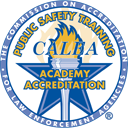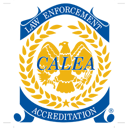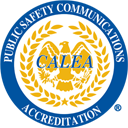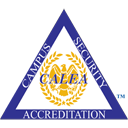Our Programs
The Law Enforcement Accreditation process focuses on standards that provide best practices related to life, health, and safety procedures for the agency. These standards are considered foundational for contemporary law enforcement agencies.
The program provides the framework for addressing high-risk issues within a contemporary environment and ensures officers are prepared to meet basic community service expectations and prepared to manage critical events.
The Public Safety Communications Accreditation Program provides a communications center, or the communications unit of a public safety agency, with a process to systemically review and internally assess its operations and procedures.
This program requires organizations to collect and analyze important data for the purpose of making sound operational and administrative business decisions, creating leadership and practitioner accountability.
In addition, the focus is on quality assurance, interoperability, emerging technologies, risk analysis, asset security, resources access, contemporary training, and a range of other operational functions.
 Training Academy Accreditation
Training Academy Accreditation
The Public Safety Training Academy Accreditation Program is designed to provide administrative and operational support to contemporary organizations with the responsibility for training public safety officials.
The program focuses on basic as well as advanced curriculums, with the emphasis on sound instructional techniques, facilities management, student safety, records integrity, and a host of other issues that promote the professional delivery of training within the public safety industry.
This results in the clear identification of training institutions that set the standards for others to follow.
The Campus Security Accreditation Program is designed for educational campus security organizations that primarily employ non-sworn security officers and identify themselves as campus security entity.
The program focuses on the safety and security of students and applies CALEA-developed standards that require organizations to consider critical issues such as facility risks, regulatory reporting, technology-based security monitoring, preventive patrol, and a host of other issues that provide comprehensive service delivery.
This approach promotes student and parent confidence and fosters an environment of transparency and continuous organizational improvement. Additionally, CALEA conducts conferences, workshops, and presentations in the application of campus security standards. The assessment process then includes a critical review to verify compliance with the standards.
 Law Enforcement Accreditation
Law Enforcement Accreditation Communications Accreditation
Communications Accreditation Campus Security Accreditation
Campus Security Accreditation